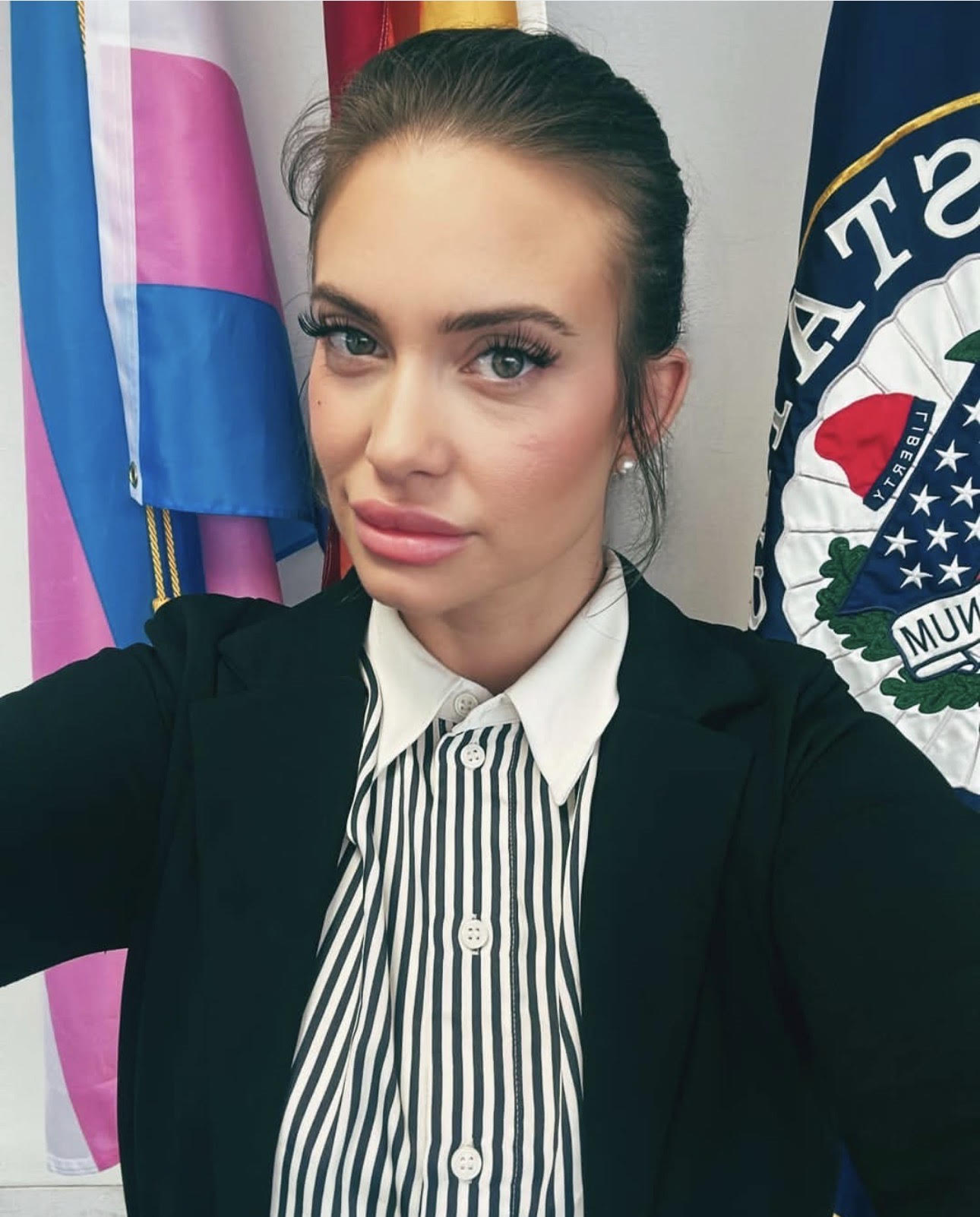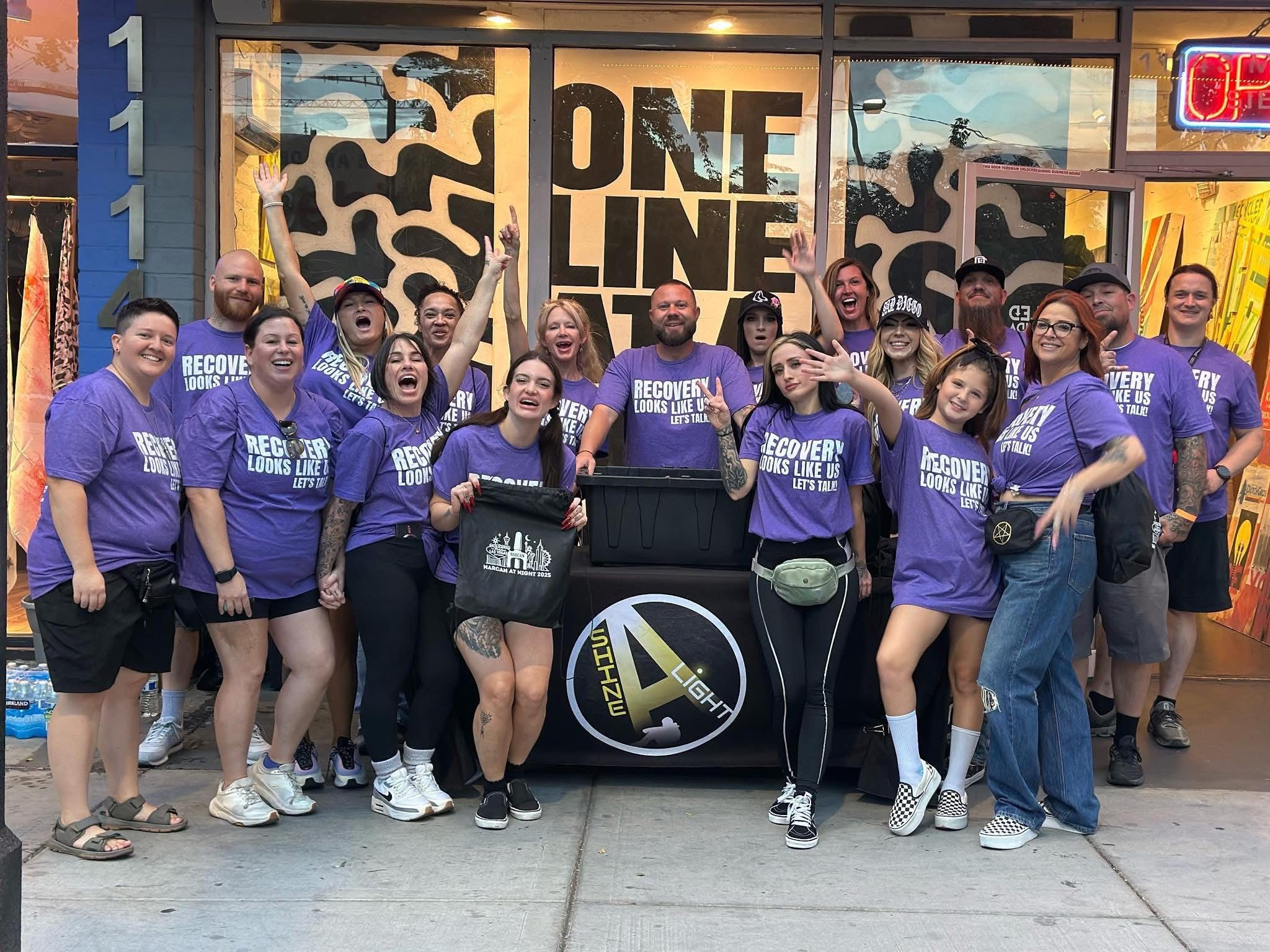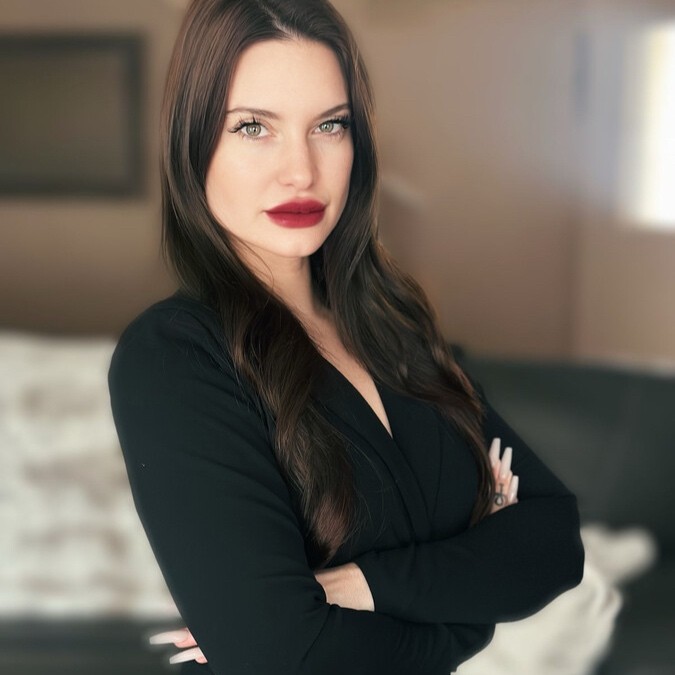We caught up with the brilliant and insightful Teresa Sands a few weeks ago and have shared our conversation below.
Teresa, looking forward to hearing all of your stories today. If you had a defining moment that you feel really changed the trajectory of your career, we’d love to hear the story and details.
From the Stage to the Front Lines: A Journey of Recovery and Purpose
For nearly 18 years, I lived and breathed show business. Performing was my passion, the rhythm, the lights, the artistry of storytelling through movement. On stage, I felt alive, confident, and connected. But behind the bright lights, I was carrying pain that no audience could see.
Throughout my life, I struggled with grief and loss, and heroin became my way to cope. Using wasn’t about escaping; it was about surviving. I used to quiet the pain I didn’t yet have the tools to face. For me substances were suicide prevention. They served a purpose.
While I thrived as a professional dancer, problematic relationship to substances followed. Eventually, my path took a devastating turn when I became a survivor of sex trafficking. That trauma deepened my dependence and left me feeling lost, disconnected, and unsure how to rebuild.
When the COVID-19 pandemic shut down the entertainment industry, everything stopped: the music, the travel, the nonstop movement. In that stillness, I finally confronted the truth: I needed to heal. That’s when I found the Crisis Text Line.
Volunteering as a crisis counselor was the defining moment that changed everything. For the first time, I wasn’t running from my pain; I was using it to help others through theirs. Every conversation with someone in crisis reminded me of my own struggles: loneliness, fear, addiction, and loss. But through those exchanges, I also rediscovered hope. Listening to others and offering empathy became a mirror that reflected my own capacity to recover, to care, and to rebuild. That experience didn’t just spark my recovery; it revealed my purpose.
From that moment forward, I committed myself to turning my pain into purpose. I went back to school, earning my Bachelor’s degree in Human Services with a focus on Addiction Studies from Indiana Tech, and I’m now pursuing my Master of Social Work at the University of Nevada, Reno.
Today, I’m a Certified Peer Recovery Support Specialist and Admissions Coordinator at Virtue Recovery Center, where I help individuals and families navigate treatment access and begin their healing journeys.
I’ve built a life that I never could have imagined during my darkest days, one surrounded by community, love, and purpose. I have a fantastic son who inspires me every day, a supportive partner who stands beside me, and a network of friends and community partners who remind me of the power of connection. Together, we work to change systems, challenge stigma, and make sure that everyone, no matter their story, has a seat at the table.
As the Nevada Chapter Lead for Young People in Recovery, I collaborate with incredible community partners across the state to organize harm-reduction and overdose-prevention workshops. We distribute Narcan, teach overdose response, and hold space for conversations about multiple pathways to recovery. Recovery doesn’t look the same for everyone, and that’s something to celebrate, not judged.
Through my work with the Recovery Advocacy Project Nevada, I also help push for policy reform that uplifts the rights and dignity of people who use drugs. My mission is to create systems of care that meet people where they are, whether that means safe supply, medication-assisted recovery, harm reduction support, or abstinence-based programs. What matters is keeping people alive, safe, and seen.
From the stage lights of show business to the steady glow of community connection, my journey has been one of transformation. I no longer perform for applause; I show up for people. I advocate, I educate, and I fight for those who haven’t yet found their voice.
My defining moment didn’t happen in a spotlight; it occurred in the quiet space of a text conversation during a global crisis, when I realized that compassion could heal both the giver and the receiver. That moment turned survival into leadership, addiction into advocacy, and grief into purpose.
Today, my life is filled with meaning, community, and love. Recovery didn’t just save my life; it gave me one worth living, surrounded by people who believe in change, second chances, and the power of a defining moment.

Teresa, before we move on to more of these sorts of questions, can you take some time to bring our readers up to speed on you and what you do?
I am a human rights advocate, educator, and leader dedicated to advancing addiction recovery and promoting harm reduction initiatives. I am born and raised in Las Vegas, Nevada, and deeply connect to this community and bringing a unique perspective to this shared work.
I hold a Bachelor of Science in Human Services with a focus on addiction studies from Indiana Tech. I am pursuing my Master of Social Work at the University of Nevada, Reno. I am a Certified Peer Recovery Support Specialist, blending professional expertise with lived experience to empower individuals affected by Substance Use Disorder (SUD) while keeping people who use drugs safe and ensuring they have a seat at the table.
As an Admissions Coordinator, I help individuals and families overcome the challenges of accessing treatment, guiding clients through the complexities of care, and providing them with the resources and support they need to start their recovery journey.
With 18 years of experience in show business, I also bring a unique empathy and understanding to her advocacy for sex workers and survivors of sex trafficking. My background has fueled my passion for human rights and commitment to creating inclusive spaces where everyone feels respected and supported.
I am a proud member of the Recovery Advocacy Project Nevada, where I actively advocate for policies that support all individuals, including people who use drugs.
I am also the Nevada Chapter Lead for Young People in Recovery, where i get to collaborate with amazing community partners to organize harm-reduction workshops, conduct overdose prevention training, facilitate Narcan distribution events, and create pro-social and safe spaces for the LGBTQIA community. Through these efforts, we emphasize the importance of educating communities about multiple pathways to recovery and ensuring equitable access to care for underserved populations.

How’d you build such a strong reputation within your market?
Building my reputation has largely been influenced by three key qualities: honesty, vulnerability, and empathy.
Honesty has allowed me to establish trust with others. When people see that I communicate openly and transparently, they feel more comfortable approaching me.
Vulnerability has been crucial as well. By sharing my own struggles and setbacks, I’ve been able to connect with others on a deeper level. It shows that I’m not just an industry professional, but a real person who faces challenges like everyone else.
Lastly, empathy has helped me to understand and relate to the experiences of those around me. When I take the time to listen and validate someone’s feelings, it fosters a sense of community and support.
Together, these qualities have helped me cultivate a positive reputation that reflects genuine care and trustworthiness.

Learning and unlearning are both critical parts of growth – can you share a story of a time when you had to unlearn a lesson?
Unlearning the belief that everyone would understand me or want to hear me out has been one of the most challenging aspects of my journey in recovery.
When I began advocating for basic human rights and overdose prevention, I naively thought that my experiences and insights would resonate widely. After all, these are vital issues that affect many people, right?
But as I delved deeper into advocacy, I quickly realized that not everyone shared the same perspective or was willing to listen. There were moments where I poured my heart out, sharing my story and the critical need for compassion and understanding in the realm of addiction and recovery, only to be met with indifference or misunderstanding. It became clear that while my experiences were deeply significant to me, they didn’t automatically connect with everyone around me.
This revelation was tough to swallow. I had to confront my expectations and understand that everyone has their own struggles, biases, and preconceived notions. I learned that just because a topic is important to me doesn’t mean it will be important to others. It challenged me to rethink how I approach conversations and engage with different audiences.
I began to understand the importance of empathy and patience. Instead of seeking immediate validation, I focused on building relationships and finding common ground with those who may not initially see the significance of overdose prevention or human rights in recovery contexts. I realized that advocacy isn’t always about making people understand right away; sometimes, it’s about planting small seeds of awareness and being willing to revisit the conversation multiple times.
This process of unlearning has deepened my resilience and commitment to my cause. I’ve come to appreciate that, while not everyone will want to hear me, many do. Finding and connecting with those individuals has made my advocacy journey all the more meaningful. It’s taught me that persistence, understanding, and compassion are crucial, not just for others, but for myself as well.
Contact Info:
- Website: https://youngpeopleinrecovery.org
- Instagram: Teresa_Glam
- Facebook: https://www.facebook.com/teresa.glam1
- Linkedin: https://www.linkedin.com/in/teresa-sands/




